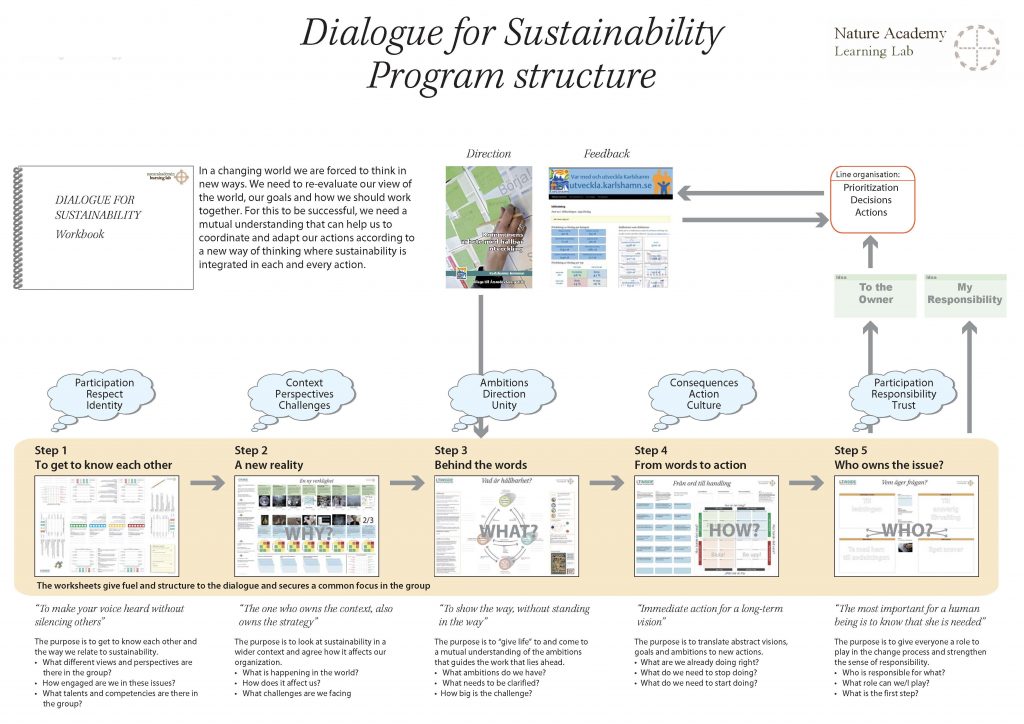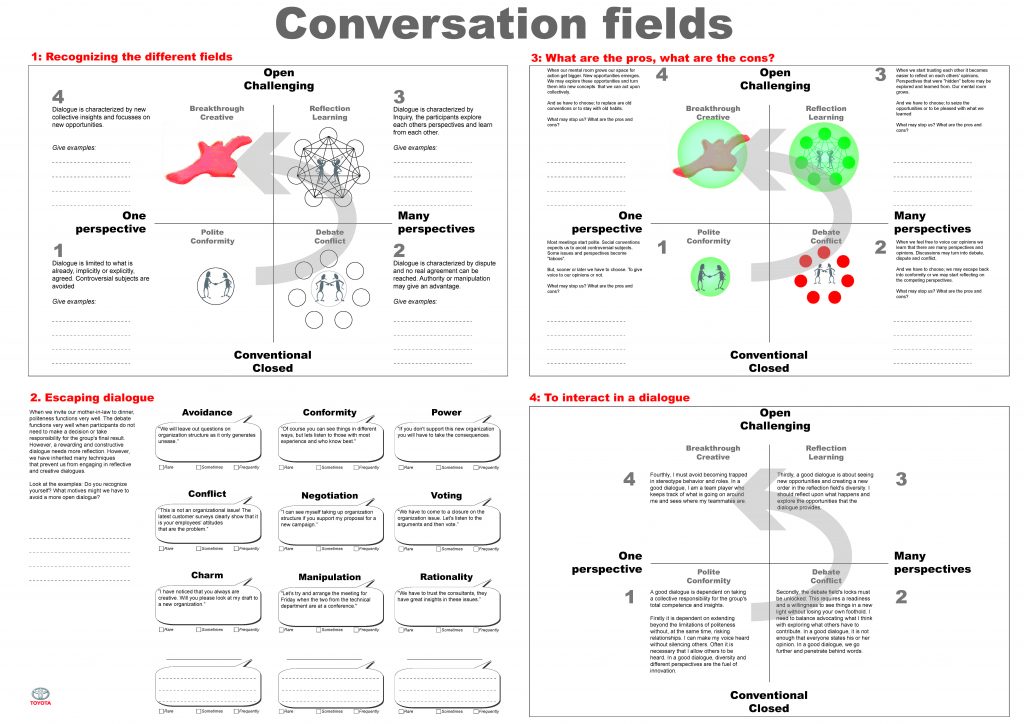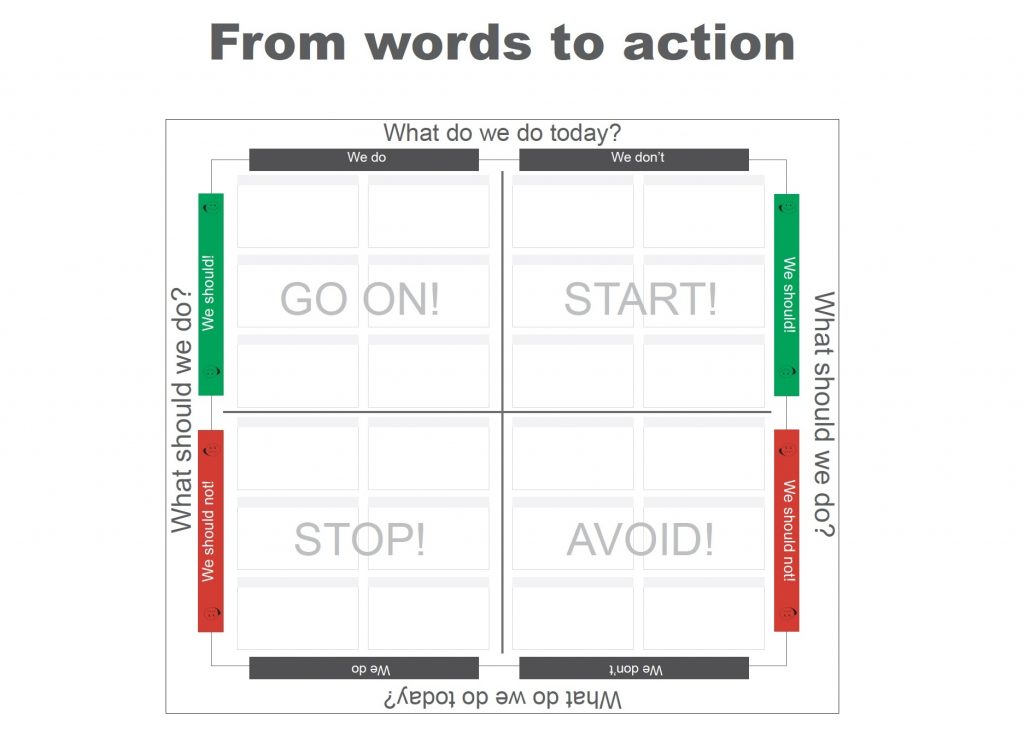A Framework for Organisational Learning, Transformation, and Purposeful Dialogue
Even though people may carry different values and worldviews, the path to true sustainability is one we must walk together. This requires a shared language, a common direction, and the willingness to explore what we truly mean when we speak of goals, change, and meaning.
When we nourish trust, co-create with intention, and act with fairness and integrity, we begin to create the inner and outer conditions needed to realise the goals of sustainable development. And to meet the complexity of today’s challenges, we must strengthen the human capacity for learning — not just individually, but collectively.
The skills required now demand a shift: toward openness, neuroplasticity, and deeper awareness. We need to cultivate mindsets that welcome new perspectives, support inner growth, and are aligned with a sense of purpose that goes beyond the self.
A Practical Method for Regenerative Development
From Words to Action is a dialogue-based approach that responds to this need. It offers simple yet powerful tools that invite shared responsibility, build psychological safety, and empower leaders and teams to engage meaningfully with what matters most.
Working within a Learning Lab structure brings several benefits:
- It enables broad participation and quick dissemination throughout an organisation or system.
- It strengthens leadership by creating space for reflective, courageous conversations.
- It supports ongoing learning and adaptive strategies, aligned with the organisation’s real-world challenges and ambitions.
Activating Internal Capacity
The program is best implemented through internal facilitators — conversation leaders trained to guide processes that resemble modern learning circles. The materials include a hands-on workbook, visual learning canvases, and tailored implementation support as needed.

Why This Approach Works
- Leaders can act as “learning hosts,” making it easier to lead through complexity while deepening their own leadership practice.
- Internal coaches are developed as cross-functional connectors and change agents, enhancing both dialogue and capability across the system.
- Tools are easily adapted to the context, the people, and the questions at hand.
- Using internal resources builds ownership, deepens engagement, and keeps the approach cost-effective and embedded in everyday practice.
How it Works: A Dialogue-Based Learning Journey
– At the heart of this process lies dialogue — the “source code” of transformation.
– A From Words to Action process always includes:
– An atmosphere where people are taken seriously and feel that they matter
– A meaningful issue that matters — personally and collectively
– A shared space of trust and accountability
– Carefully crafted materials that open space for everyone’s voice — while offering structure to support progress
– A reflective and generative dialogue that invites presence, participation, and creativity

The Workbook – A Companion for Inner and Shared Learning
The participant workbook supports individual responsibility and self-directed learning. It helps each person:
– Take notes and insights that stay with them beyond the session
– Understand the purpose of each step in the dialogue journey
– Reflect on their own values, questions, and contributions
The Five Steps: A Neurologically Aligned Process for Learning and Change

Step 1: Building Connection — “To be heard without silencing others”
We start by building a relational foundation: connecting to ourselves and each other through the lens of the 2030 Agenda.
• What perspectives and worldviews are present in the group?
• How do we relate to the sustainability challenge — emotionally and practically?
• What talents, lived experiences, and capacities do we bring?
Step 2: Sensemaking — “Whoever owns the context, owns the strategy”
We shift into a broader systemic awareness, linking sustainability to larger patterns and deeper currents.
• What’s happening in the world around us — socially, ecologically, culturally?
• How are these changes affecting us, our work, and our shared future?
• What emerging tensions or dilemmas do we need to understand better?
Step 3: Unlocking Meaning — “Show the way without standing in the way”
We clarify the guiding ambitions and shared intent that can energize long-term change.
• What is our vision?
• What needs to be made clearer or more honest?
• How big is the gap between our words and our actions?

Step 4: Moving to Action — “Immediate action for a long-term idea”
We translate insights and aspirations into tangible, aligned action.
• What are we already doing well — and why?
• What needs to stop?
• What new practices or behaviours must we begin?
• What blind spots or risks should we pay close attention to?
Step 5: Ownership and Commitment — “The deepest need is to feel needed”
Finally, we root the process in personal responsibility and collective ownership. Everyone has a role.
• Who can take responsibility for what?
• What role do I play — now and going forward?
• What’s the first step I’m ready to take?
Where It’s Been Applied
The From Words to Action methodology has been implemented by a wide range of forward-looking organizations:
- Leading companies in the recycling industry as part of strategic leadership development
- Sustainability frontrunners in the automotive sector
- A global wind energy company – introducing all employees to the SDGs,
- Karlshamn Municipality – 5,000 civil servants and elected officials engaged in dialogues
- Haninge Municipality – environmental education using the method
- Falun Municipality – system-wide implementation of their sustainability strategy
- Åre Municipality – embedding sustainability in local development plans
- Nacka Municipality – local adaptation of national environmental goals
- Lerum Municipality – using the method in dialogues on the municipal vision
- Uddevalla Municipality – facilitated the development of Plan Welfare 2030 and Agenda 2030 alignment
Example of the application supporting the 2030 Agenda Goals
One example of the application of this method has supported the UN Agenda 2030 and the 17 Sustainable Development Goals (SDGs). These goals form a global roadmap toward a more sustainable, just, and resilient future. Our approach offers a grounded framework for engaging with the SDGs — not just intellectually, but relationally and practically. We focus on educating, inspiring, and empowering people to become agents of regenerative change in their communities, in their organisations, and in their own lives. In doing so, we also invite each individual to reconnect with a deeper sense of purpose and contribution — a shift from compliance to commitment, policy to practice, and words to meaningful action.
…and many more


